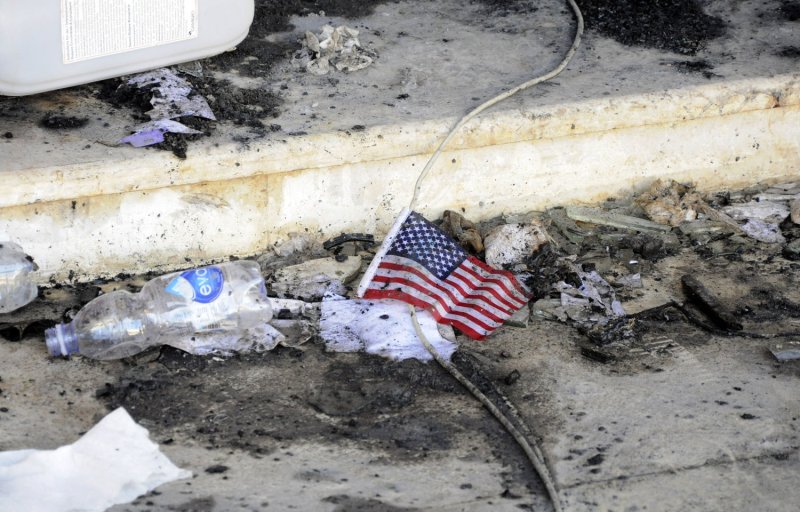A small American flag is seen in the rubble at the United States consulate, one day after armed men stormed the compound and killed the U.S. Ambassador Christopher Stevens and three others in Benghazi, Libya on September 12, 2012. The gunman were protesting a little known film by an American amateur filmmaker that angered Muslims as it was deemed insulting to the Prophet Mohammad. UPI/Tariq AL-hun |
License Photo
TRIPOLI, Libya, Feb. 25 (UPI) -- The U.N. Support Mission in Libya said Tuesday violence in the country was a violation of human dignity and an assault on the spirit of the revolution.
UNSMIL said it had "deep" concerns about continued violence in Libya, including assassinations and attacks on judicial and political leaders, polling centers and buildings housing government buildings.
The mission said it was the responsibility of Libya's elected leaders to put an end to acts of violence "which threaten stability in Libya, put the security of its people at risk, violate human dignity and undermine the values that Libyans uphold."
Unnamed militants shot at the building housing Libya's General National Congress last weekend, though no injuries were reported by the independent Libya Herald. The newspaper reported Monday the bodies of seven Coptic Christians from Egypt were found executed in Benghazi.
Libyans last week marked the third anniversary of the revolution that removed Moammar Gadhafi from power. Civil war that followed ended with his death in late 2011.
Libya has struggled to maintain a level of national security since then because of violent internal rivalries.
Last week, U.S. President Barack Obama said the situation in Libya "continues to pose an unusual and extraordinary threat to the national security and foreign policy of the United States."





